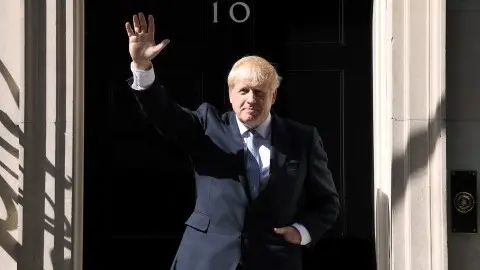GBP: The pressure is building
Sterling continues its descent as concerns about the Brexit outlook intensify. While there is already a 3% risk premium in EUR/GBP, this is still below the 4% level seen in 3Q18 after Chequers, making it consistent with our 3Q19 forecast of 0.92 for EUR/GBP. The likely election of Boris Johnson as the next Conservative leader will add pressure to GBP
More negative news ahead
In the month ahead, we expect headline news to continue to negatively impact sterling. First, the likely confirmation of Boris Johnson as the next Conservative leader and thus prime minister next Tuesday won’t be helpful for GBP. The Conservative party conference in late September will also add pressure to GBP, with peak pressure building in October ahead of the 31 October Article 50 extension deadline.
While the outlook for GBP does not look great, sterling has already moved considerably. Below we look at the technicals such as risk premium, positioning and the option market and conclude that despite the bad news already being reflected in sterling, there is still scope for further GBP decline. This is consistent with our forecast of EUR/GBP 0.92 and GBP/USD 1.22 this summer. Risks to our GBP forecasts remain on the downside, stemming from both risks of a hard Brexit or early elections.
If elections are called early, we see EUR/GBP approaching the 0.95 level.
Risk premium
Following the recent sterling decline, a fair degree of risk premium is priced into sterling. Based on our short term financial fair value model, we estimate the risk premium is currently worth around 3%, which is elevated and outside of the usual 1.5 standard deviation band – as the figure above shows. However, the same chart shows, this is still below the GBP risk premium highs observed in 3Q18 after the Chequers cabinet meeting, which was followed by the resignation of Boris Johnson. At that time the risk premium was worth 4%, suggesting another 1% decline in GBP could be still on cards and consistent with our forecast of 0.92 this summer.
In the case of early elections (a meaningfully rising probability), we can see EUR/GBP at 0.95 as the prospects of a potential Labour government or a hard Brexit are unlikely to go down well with global investors.
GBP risk premium on the rise
Speculative positioning
Market concerns about the Eurosceptic prime minister have led to a meaningful build-up / re-building of speculative sterling shorts, 30% of open interest currently, as the figure above shows. This exceeds the level of speculative shorts in January this year and has been only surpassed by the level of speculative shorts in the post Chequer’s period (around 35% of open interest at the time). As the figure below shows, only rarely have GBP/USD speculative shorts exceeded the 35%-40% level (in terms of open interest). This means that while there is still some scope for a build-up of short GBP positions, the pace of the increase in GBP shorts should slow versus the aggressive build-up over the past months. This also suggests EUR/GBP trades to 0.92 this summer unless we see meaningful news (i.e., sharply rising probability of hard Brexit or early elections).
GBP speculative shorts on the rise

Option market / volatility
The rising perceived probability of a disorderly Brexit after the 31 October deadline (in response to the comments from Boris Johnson, the leading Conservative leadership candidate) is reflected in the option market, with the sterling implied volatility curve heavily kinked around the deadline date (that is the 3-4 months tenors) versus the close-to-normally upward sloping shape of the curve 2-3 months ago. This is evident in the figure below. Sterling risk reversals also surged, but are still below the March highs, suggesting a further increase over coming months
Rarely have GBP/USD speculative shorts exceeded the 35%-40% level
Sterling volatility curve heavily kinked around the deadline date
This publication has been prepared by ING solely for information purposes irrespective of a particular user's means, financial situation or investment objectives. The information does not constitute investment recommendation, and nor is it investment, legal or tax advice or an offer or solicitation to purchase or sell any financial instrument. Read more
Download
Download article
17 July 2019
Will Britain’s economy rise or fall under Brexit PM Boris Johnson? This bundle contains 3 Articles